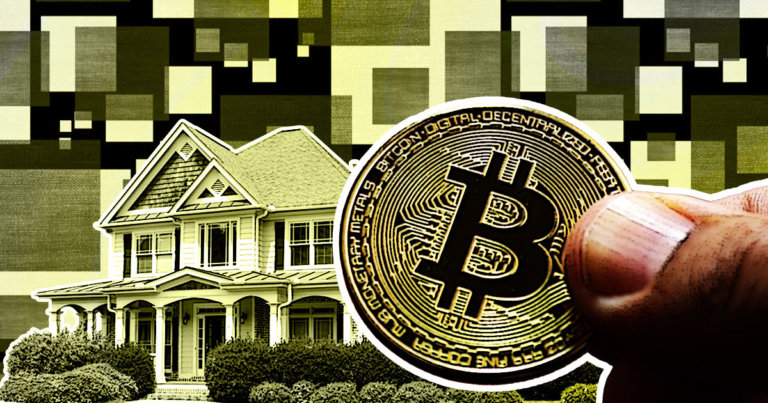 You can now get a Bitcoin backed mortgage without a credit score
You can now get a Bitcoin backed mortgage without a credit score You can now get a Bitcoin backed mortgage without a credit score
A Miami based lending firm is offering crypto backed mortgages if you have 100% of the value of the home in crypto.

Cover art/illustration via CryptoSlate. Image includes combined content which may include AI-generated content.
The Miami-based startup, Milo Credit, is offering Bitcoin-backed mortgages to allow people to purchase homes without selling their coins. In the US, like most countries, selling crypto for fiat is a taxable event. This means any gains or losses since the purchase are realized at the point of sale and therefore taxed, which is due to the relevant authority. If the crypto holder has realized gains upon selling, the tax due could be sizable.
Crypto-backed mortgages
Bloomberg reports that a Florida man, Vincent Burniske, has secured a “30-year fixed-rate mortgage secured by part of his Bitcoin and Ethereum holdings.” Milo Credit’s mortgage claims to let homeowners “leverage your crypto to invest in real estate. Our strategy matches yours – keep HODLing.”
According to their website, rates are as low as 3.95%, with the crypto held in custody by Gemini and Coinbase. The crypto mortgage offering goes up to $5 million but requires at least 100% of the loan value in crypto to secure against the loan. Unlike traditional mortgages that can go as low as 3.5% of the loan value, this crypto mortgage requires you to hold the total value of the property you are purchasing in crypto. The crypto is then held in sub-accounts with Gemini and Coinbase to ensure that all coins are kept separately.
According to Milo’s website, the process is faster than a traditional mortgage application. You can also pay your mortgage payments using stablecoins but not Bitcoin or Ethereum.
You don’t need a credit score.
Further, Milo Credit does not require a FICO credit score to acquire a mortgage. The value of the cryptocurrency is deemed adequate to secure creditworthiness. This small print is potentially massive for many struggling to get onto the property ladder.
6ix9ine recently created a video highlighting how you can be rich without being deemed eligible for a mortgage in today’s society. He later admitted that the cash in the video was prop money, but the message still rings true for many alternative investors and gig economy workers.
Self-employed workers have to jump through many hoops to be approved for a mortgage. You need to show a solid credit score for most mortgages. However, that doesn’t just mean having a good credit score; you can be rejected for not having a score. If you do not have monthly utilities or use a credit card, your score may be blank, which can be as troublesome as having unpaid debt when applying for a loan.
Further, if your primary source of funds comes in the form of crypto payments, then it may be near impossible to convince a traditional bank to accept you for a loan. A crypto-backed loan that doesn’t require a credit check may open doors to young crypto investors and self-employed freelancers who, until now, have been forced to rent or live with family.
Liquidations
You can run into trouble with a traditional mortgage if the housing market collapses, causing you to go into negative equity with your home. This is where you owe more than the value of your house. If you have a $100,000 mortgage on a house worth $120,000 and the housing market drops by 20%, your home is worth $96,000, but you still owe $100,000. In some cases, the bank may ask for additional collateral or, in extreme cases foreclose on your home. After the mortgage crisis of 2008, there were hundreds of thousands of homes repossessed.
However, with a crypto mortgage, you could rely on the price of Bitcoin to secure the roof over your head. Milo will issue a margin call if the value of your crypto holdings dips below 65% of its original value. If this happens, you are then given 48hours to increase your collateral.
They claim they do not “automatically liquidate,” but they will manually liquidate your assets if the value drops to 30% of the original collateral. Conversely, if the value of your crypto goes up, you may withdraw the overage on an annual basis or reduce your interest rate.















































































































